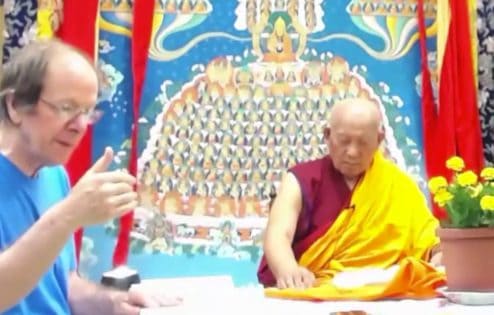Geshe Yeshe Thabkhe
Geshe Yeshe Thabkhe was born in 1930 in Lhokha, Central Tibet and became a monk at the age of 13. After completing his studies at Drepung Loseling Monastery in 1969, he was awarded Geshe Lharampa, the highest degree in the Geluk School of Tibetan Buddhism. He is an emeritus professor at the Central Institute of Higher Tibetan Studies and an eminent scholar of both Madhyamaka and Indian Buddhist studies. His works include Hindi translations of The Essence of Good Explanation of Definitive and Interpretable Meanings by Lama Tsongkhapa and Kamalasila's commentary on the Rice Seedling Sutra. His own commentary, The Rice Seedling Sutra: Buddha’s Teachings on Dependent Arising, was translated into English by Joshua and Diana Cutler and published by Wisdom Publications. Geshela has facilitated many research works, such as a complete translation of Tsongkhapa’s The Great Treatise on the Stages of the Path to Enlightenment, a major project undertaken by the Tibetan Buddhist Learning Center in New Jersey where he teaches regularly.
Featured Series

Aryadeva’s 400 Stanzas with Geshe Yeshe Thabkhe (2013-17)
Teachings by Geshe Yeshe Thabkhe on Aryadeva’s Four Hundred Stanzas on the Middle Way given at Sravasti Abbey and Tibetan Buddhist Learning Center, New Jersey. With interpretation into English by Joshua Cutler.
View Series
Pramanavarttika with Geshe Yeshe Thabkhe (2018–21)
Geshe Yeshe Thabkhe teaches Dharmakirti's commentary on Dignaga's Compendium on Valid Cognition. With interpretation into English by Joshua Cutler and Katrina Brooks.
View SeriesFeatured Posts
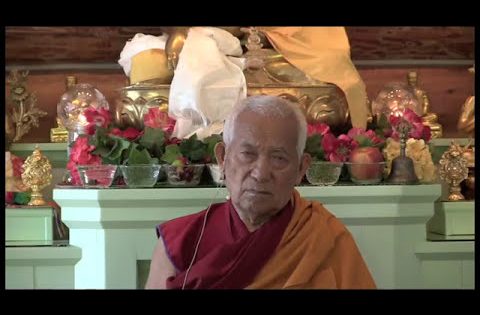
Chapter 4: Verses 90–100
What does it take to be an ethical leader? Is it appropriate f...
View Post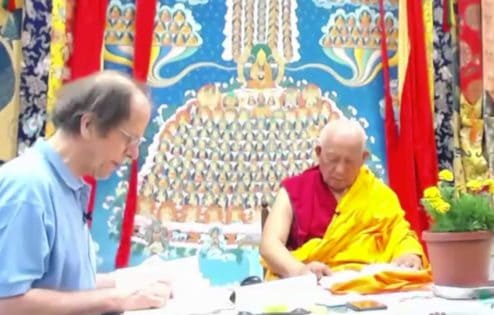
Proving past and future lives
Verses proving the existence of past and future lives over whi...
View Post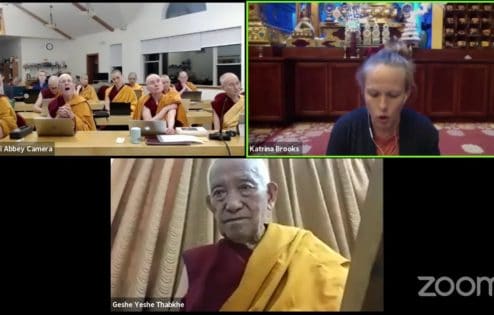
The sixteen aspects of the four truths
How the sixteen aspects of the four truths contradict the sixt...
View PostView Posts
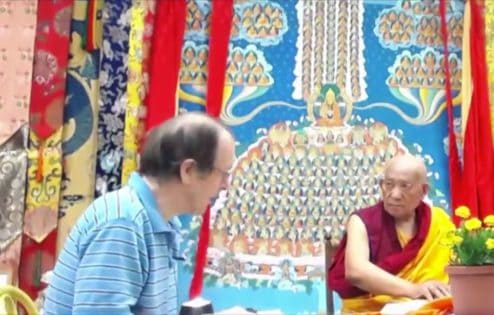
The particulars of the definition
The components of the definition of a reliable cognizer as being "new" and "non-deceptive."
View Post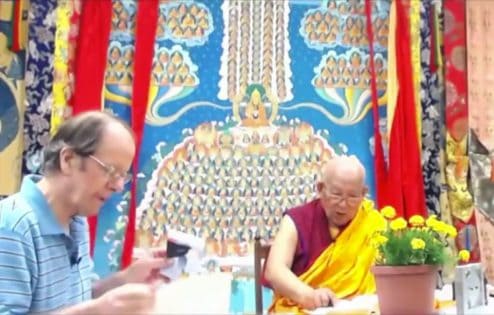
Ascertaining the definition in the definiendum
How we ascertain whether we have reliable cognizers.
View Post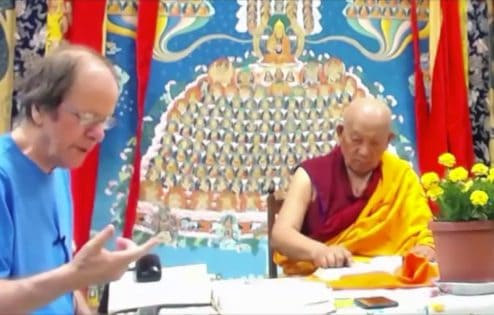
Dignaga and Dharmakirti’s intention
Why Dignaga and Dharmakirti establish proofs for the Buddha as a reliable cognizer being.
View Post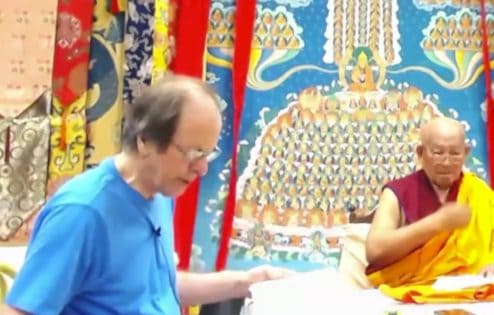
Excellent causes and results of buddhahood
Dignaga's homage to the Buddha that proves why the Buddha is a reliable cognizer being.
View Post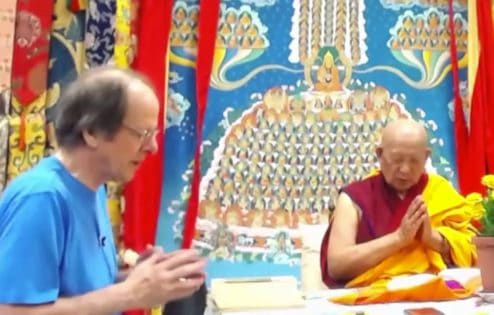
Dharmakirti’s “Pramanavarttika”: I...
Background on the five areas of knowledge for bodhisattvas and the eight pivotal points of…
View Post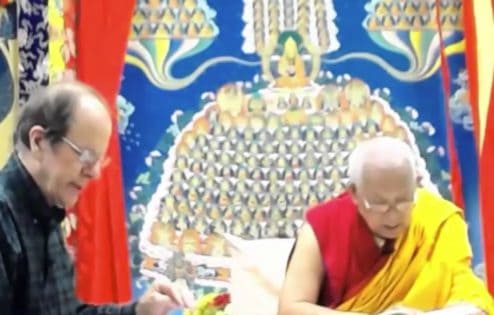
Chapter 16: Verses 387-400
Geshe Yeshe Thabkhe concludes the final chapter of the text, refuting remaining wrong views about…
View Post
Chapter 15: Verses 366-375
Teachings on refuting inherently existence of objects being produced; summary of refutations of inherent existence.
View Post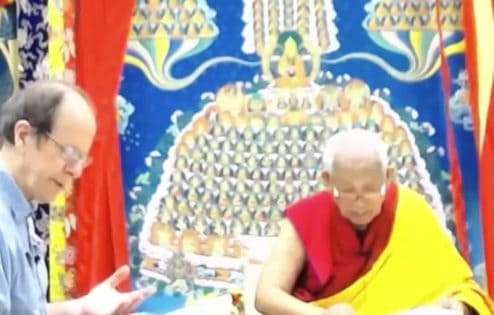
Chapter 16: Verses 376-386
Does emptiness exist inherently? Teachings on refuting remaining arguments raised by opponents against the thesis…
View Post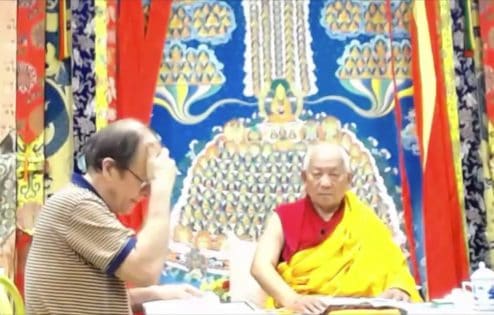
Chapter 15: Verses 360-365
Geshe Yeshe Thabkhe teaches on analogies for the emptiness and the lack of inherent existence…
View Post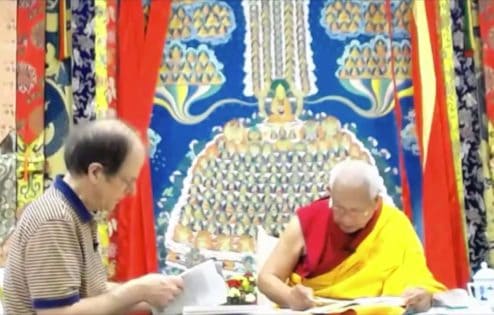
Chapter 15: Verses 351-359
How can anything which exists at the time of its cause be produced? Teachings on…
View Post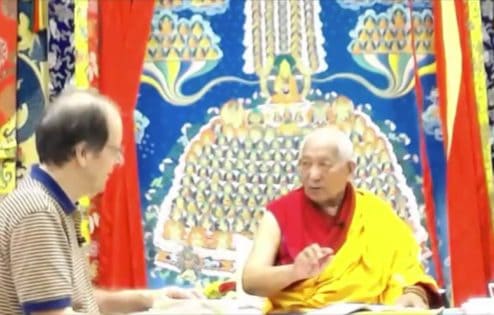
Chapter 14: Verses 347-350
Teachings on the verses showing how the reasoning on dependent arising refutes inherent existence.
View Post